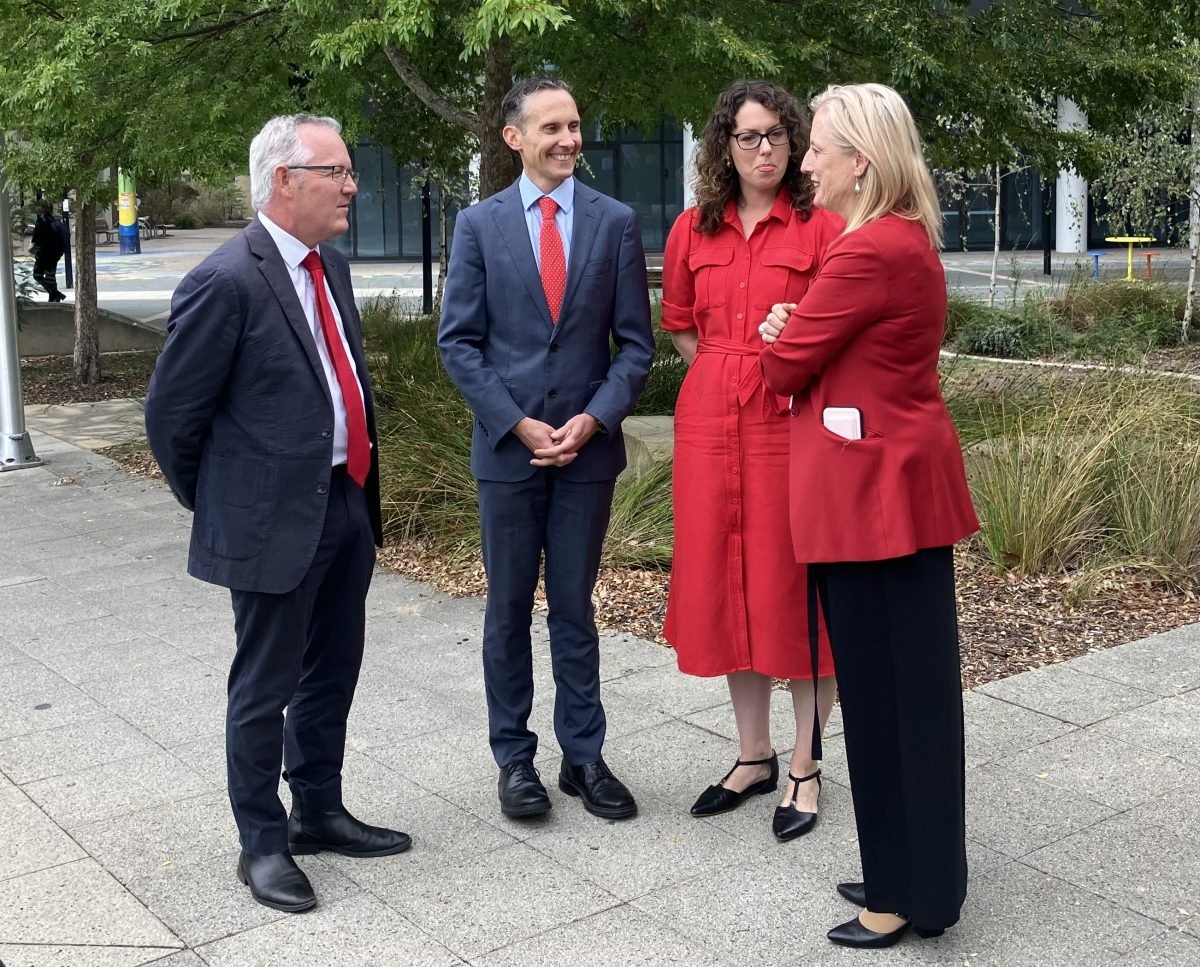
ACT Ombudsman Iain Anderson has examined the use of force by police officers. Photo: IPAA
A report into the use of force by the Territory’s police officers has found examples of “unprofessional behaviour”, including officers being aggressive, impatient and verbally abusive.
ACT Ombudsman Iain Anderson has released a report examining the use of force by ACT Policing.
From 2019 to 2023, police attended 445,736 incidents. Of these incidents, 5902 of them, or 1.3 per cent, involved reportable uses of force, which are non-routine incidents that can include anything from tasers and pepper spray to restraints.
Of the 5902 incidents, about 47 per cent involved a person under the influence of drugs or alcohol, and about 26 per cent involved a person with mental health struggles.
Over the five-year period, 1159 officers were involved in a reportable use-of-force incident. Of these officers, 439 were involved in more than 20 incidents each, and 23 were involved in more than 100 incidents each.
One officer was involved in 278 incidents, averaging more than one a week.
The 5902 incidents generated 6255 use of force reports, which the ombudsman and his team used, although they noted some of the cases were subject to ongoing civil court proceedings.
Mr Anderson said while they found examples of “excellent community policing”, they also “saw examples of policing that unnecessarily inflamed situations, resulting in poor outcomes”.
READ ALSO: ACAT finds osteopath Daniele Caminiti sexually assaulted female patient
He said “unprofessional behaviour” by officers – including impatience, aggression and foul and abusive language – appeared to unnecessarily escalate situations in about a third of 54 cases his team reviewed.
These 54 cases were a random selection and included a number that were the subject of complaints and monitoring.
“While we have seen some excellent conduct by officers, handling difficult interactions with care and respect, we are concerned at the unprofessional conduct, offensive and abusive language, and unnecessary aggression displayed by some officers, the seniority of whom does not appear to have been a determining factor,” Mr Anderson said.
He found “widespread inconsistencies” in the way officers reported use-of-force incidents, which impacted the accuracy and reliability of statistics.
When reviewing use-of-force reports against body-worn camera (BWC) footage for the incidents, a number of reports included inaccuracies, particularly in characterising the extent of a subject’s aggression and in failing to describe the “unprofessional and inflammatory” conduct of police, he said.
He was concerned that a supervisor present at a use-of-force event might still be the person who endorsed the incident’s report, as a supervisor had a “clear conflict of interest” in reviewing an incident they had attended.
READ ALSO: ‘Extreme pressure’: Supreme Court’s loss of two judges may exacerbate resourcing issues
Mr Anderson also said ACT Policing and the Australian Federal Police (AFP) “do not have sufficiently effective internal mechanisms of oversight and accountability” to learn from good practice or mistakes.
He also noted that “the practice of prematurely dismissing misconduct allegations prior to investigation needs to cease”.
BWCs were important when it came to improving officer accountability, he said, but ACT Policing has no oversight mechanism to ensure officers were complying with the requirement to use them.
“To reduce the extent of unprofessional, dismissive and discriminatory conduct when dealing with members of the public, and to foster more effective community engagement, ACT Policing needs to ensure unacceptable conduct is not condoned and is reported,” Mr Anderson said.
The ombudsman’s report made 13 recommendations, of which ACT Policing accepted two, partially accepted eight and did not accept three.

ACT Policing Chief Police Officer Scott Lee said most incidents involving police officers were conducted appropriately. Photo: Albert McKnight.
In May, AFP Commissioner Reece Kershaw wrote to Mr Anderson expressing his concerns that a number of the ombudsman’s recommendations “go beyond the scope of the review”.
That same month, ACT Chief Police Officer Scott Lee wrote to Mr Anderson to say he was concerned “the generalisations and assertions made within the report could lead readers to believe there are systemic issues within ACT Policing”.
After the report was publicly released on Monday (10 June), Mr Lee said the overwhelming majority of interactions officers have with the community were appropriate and were conducted with care, professionalism and to the high standards expected by ACT Policing and the community.
“Whilst the vast majority of our interactions with the community are undertaken professionally and to a high standard, where mistakes are identified, ACT Policing and the AFP are committed to ensuring that these matters are reviewed, learnings are identified and appropriate action is taken,” he said.
“While the use of force for police may be necessary at times, we recognise that de-escalation, without the need for force, should always be our first option.”

Marisa Paterson said use-of-force concerns were taken extremely seriously. Photo: Michelle Kroll.
Minister for Police Marisa Paterson said as reportable use of force occurred in just 1.3 per cent of incidents police attended, this showed the vast majority of interactions between police and the community were conducted appropriately.
“When inappropriate behaviour or use of force occurs, it is taken extremely seriously,” Dr Paterson said.
“ACT Policing has a strong Professional Standards framework that ensures officers are held accountable under the AFP Code of Conduct.
“Sanctions can include counselling, demotion, dismissal or, where appropriate, criminal charges.”



